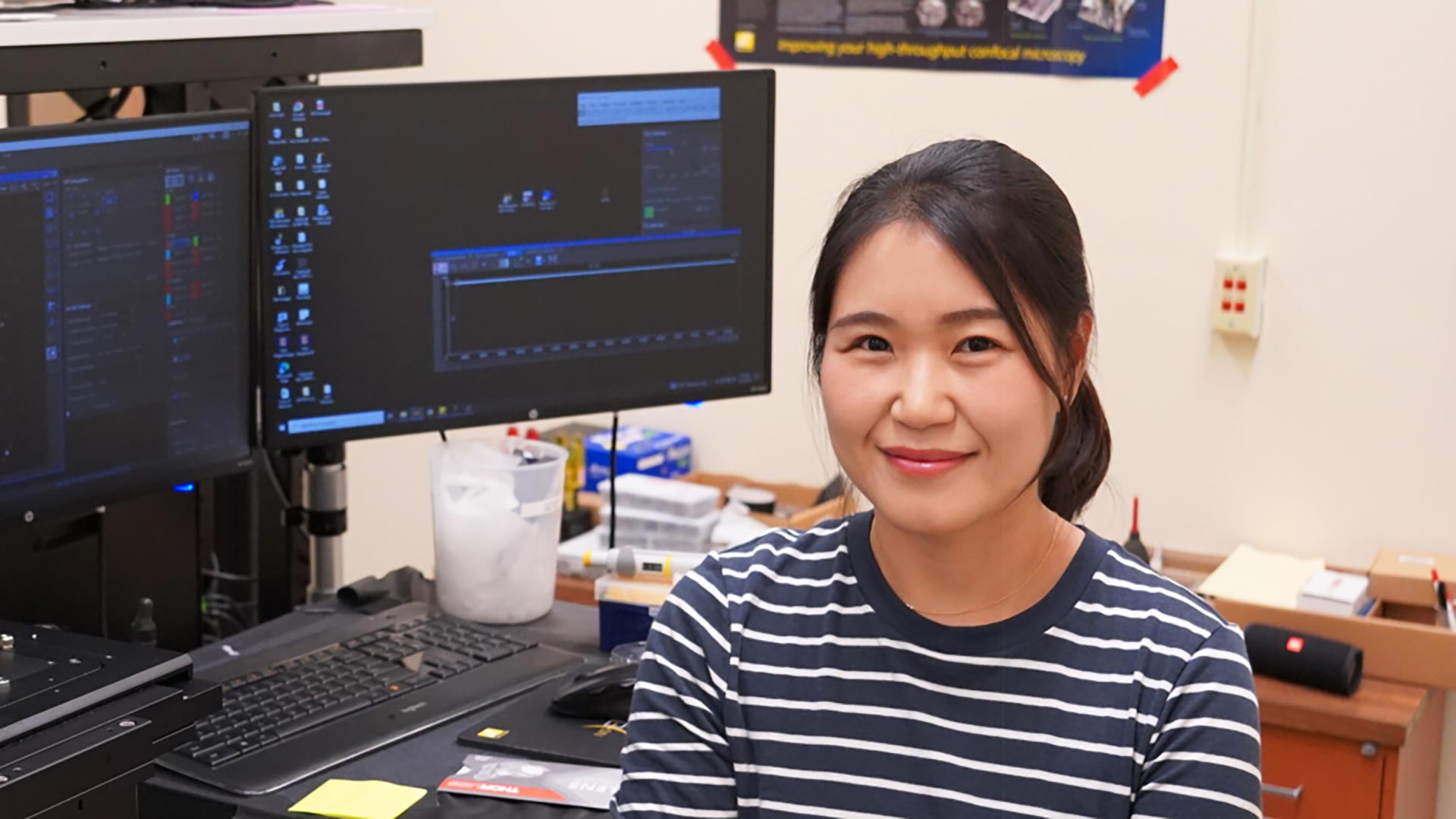
Jean Chung, assistant professor in the Department of Chemistry
They say we grow until a certain age. Then, we just oxidize.
That is, the thin outside layers of our cells start to experience a chemical chain reaction called oxidation, which damages the cells and is linked to a host of age-related diseases including cancer, Alzheimer’s and stroke.
Colorado State University chemist Jean Chung is trying to better understand this oxidation process at the level of individual cell membranes. Such insights could lead to breakthroughs in chemical manipulation of the cellular oxidation process, and possible new biotechnologies to slow aging and treat age-related diseases.
Chung, assistant professor in the Department of Chemistry, has received $1.8 million from the National Institutes of Health to study this fundamental aging process of cells, more specifically known as membrane lipid peroxidation. Over the next five years, Chung and her team will develop new ways to quantitatively measure all the chemical reactions associated with membrane lipid peroxidation.
“It is very difficult to study lipid peroxidation as a chemical process because it occurs on delicate, self-assembled structures called lipid membranes – think soap bubbles,” Chung said.
Typically, membrane peroxidation is studied in living cells, where it’s difficult to measure anything. But Chung will use a novel approach: building, bottom-up, a model of a cell and measuring reaction rates with a microscope.
Chung and her team are funded under an NIH Maximizing Investigators’ Research Award, reserved for early-career researchers doing breakthrough science.
Learn more about Chung’s biophysical spectroscopy lab at CSU. The Department of Chemistry is in the College of Natural Sciences.